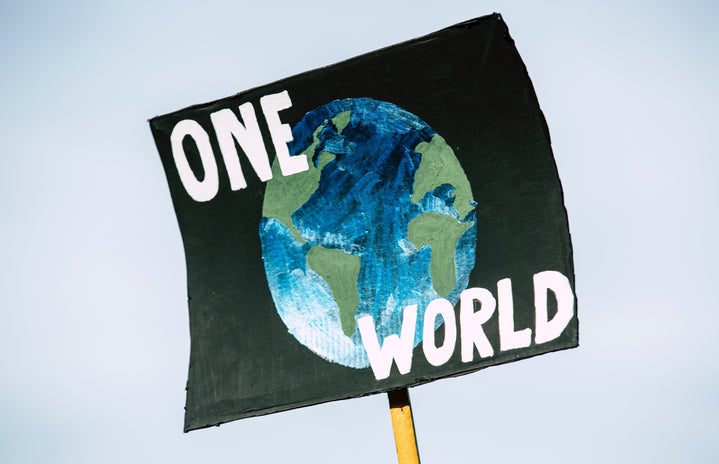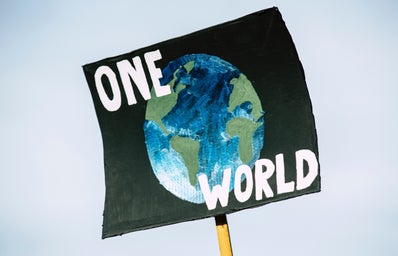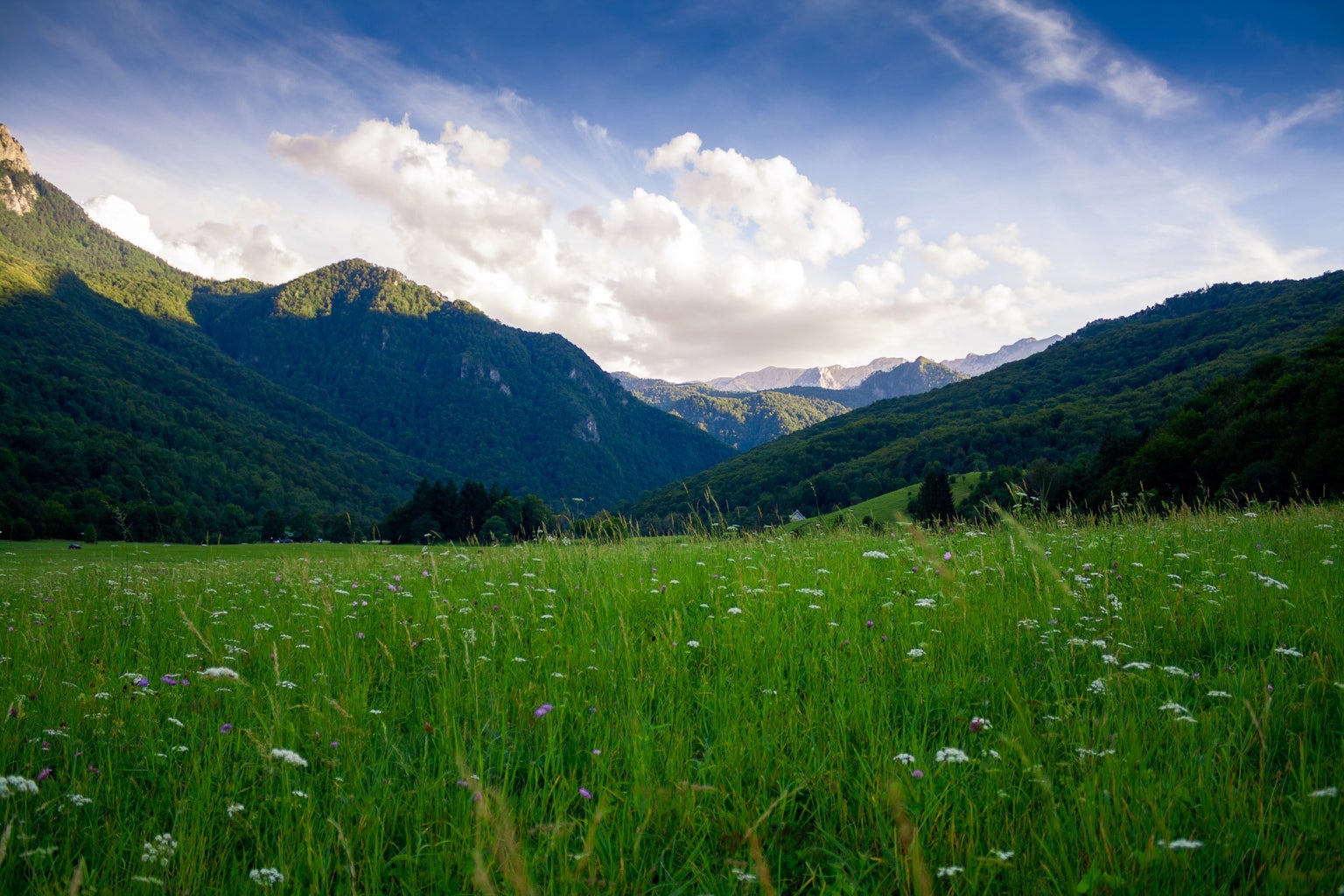College gets expensive, but you don’t need me to tell you that.
Being a college student means limited funds and limited time; the two dominant principles deterring society from living sustainably. A study done on barriers to sustainable living said that citizens aged 18-24 are deterred by the costs of “Going Green”; essentially college-aged students. Understandably, with thousands of dollars going towards education, the extra dollar is not going towards sustainable living. What if I told you that a sustainable lifestyle doesn’t have to break the bank, and could even save you some extra change!
Here are 9 budget-friendly tips to get you involved in the campus community, contribute to healthier living, and the most paramount, conserve our environment.
- Unplug
-
Although conserving energy can save you a pretty penny, it exceeds the monetary gain. By reducing the amount of electricity you use, you can avoid excessive use of resources, avoid superfluous carbon emissions, reduce pollutants from fossil fuels and diminish the need for power plants.
There are hundreds of ways to save electricity but here are a couple of quick and easy suggestions: Before you leave, ensure you turn off the lights (duh). Remove your plugin fresheners. Wash your clothes in cold water. Put decorative lights on a timer. Unplug your chargers and lights when not in use. Reduce screen brightness. Switch to LED light bulbs. Turn your refrigerator down.
- Don’t waste food
-
2. Don’t waste food. When evaluating the working pieces that go into the Food Production system, you can envision the number of resources going into growing, processing, transporting and disposing. Labor, fertilizer, water, transportation vehicles and packaging materials are just a few of the collaterals exhausting resources. Unfortunately, every step in the system produces greenhouse gasses emitted into the atmosphere. And to top it off, when food is wasted it ends up in landfills generating more methane gasses.
With the number of resources going into the production of food, it is crucial we don’t waste what is in front of us, as wasting it is essentially wasting those resources. To prevent depreciation, a general rule of thumb is to only take what you need. Whether you’re eating at the dining hall, grocery shopping or ordering out, start small and work your way up. Remember, you can always get more. If in the case you bite off more than you can chew, take the rest for leftovers or even share with your friends and neighbors. Try starting a compost bin with your organic waste. If you grocery shop, make a thorough list of what you need. Try meal prepping. Rationalize before throwing anything away, think of what else or who else can utilize your waste.
- join a club
-
College offers a plethora of organizations, most of which promote community service. You can find a club that fits your interests, but there are also clubs specializing in environmental upkeep. If you have an opportunity, look into your school’s campus organizations. Plus, who doesn’t love a resume builder?
- Eat less meat
-
Meat production is the leading source of methane production. The Environmental Defense Fund stated that if Americans had one meat-free day per week it would be the same as taking eight million cars off American roads. There are many benefits of reducing your meat intake, ones that go beyond the environment. Less meat puts an end to cruel industrial farming practices and my favorite, your health. You don’t have to go vegan or vegetarian, but once in a while attempt to swap out your burger for some extra veggies.
- Conserve Water
-
We’ve been hearing this one since kindergarten, but why save water? Not only does saving water minimize the effects of droughts and reduce the risk for water shortages in our communities, but saving water conserves energy, therefore reducing greenhouse gas emissions. It takes a generous amount of energy and resources to pump, heat, and treat the water we use every day. To conserve water (and save a little money) try these suggestions. Turn the water off when brushing your teeth. Use the dishwasher. Pick the right amount of water for your load of laundry. Check for leaks. Take a shorter shower. Only do laundry with a full load. Keep your drinking water in the fridge. Eat less water-intensive foods. Conserving water is straightforward, however, it does take expanded consciousness. If you need a boost of motivation try a post-it note near the sink, washing machine or even the shower.
- Thrift and donate your clothing
-
By thrifting your clothes, you contribute to less waste in landfills, reduce your carbon footprint, preserve water, the list goes on. What’s there to hate? Trendy, cheap and beneficial to the environment. Buying and donating at thrift stores equates to fewer resources used, therefore fewer resources wasted.
- Drink less coffee
-
For my coffee lovers, I know this is a heartbreaker. Like the food production system, coffee beans have to be grown, cultivated, harvested, processed, transported and made into coffee, relying heavily on resources, energy and the environment. Due to a huge increase in demand, coffee farmers have changed the cultivation process for economic gain. Plantations have been deforesting to “maximize sun exposure” to the plant, there’s a large fixation on growing only one species of coffee bean and coffee plantations demand a huge amount of water to be successful.
If you reduce the amount of coffee you drink, the demand goes down, accordingly leading to a lesser impact on the environment. Nonetheless, if you must drink your coffee, aim to drink organic fair trade shade grown (this means no deforestation). In addition, try investing in reusable coffee filters. If you own a Keurig, or something similar, refrain from using plastic k-cups; there are plenty of reusable options that are not single-use plastic. Reduce the number or plastic cups you accumulate by investing in a reusable coffee mug/cup that you can use at Starbucks or Dunkin’. And just as with meat, you don’t have to cut it out completely, just work towards reducing your intake.
- Walk and bike
-
Succinctly, riding your bike and/or walking, has three main benefits: environmental, physical and economic. Environmentally, by not using other means of transportation you are reducing the amount of carbon monoxide, carbon dioxide, nitrogen oxides and other toxins emitted into the atmosphere. Physically, walking and biking provide for a low-impact, aerobic way to burn calories and improve your cardiovascular health. Plus, a chance to get outdoors. Economically, you save money by not having to pay for gas, car insurance or a car payment.
- Reduce, reuse, recycle
-
Reduce: Less product, less waste. Reuse: Repurpose items for different uses. Recycle: Items are transformed into raw materials that can be shaped into new items. The three easy ways to contribute to “Going Green.” Your school probably offers tons of resources to successfully participate in the three R’s. Next time you’re in the dorms, dining halls or academic buildings check out the labeled garbage bins, biodegradable containers or even the air dryers. Most universities offer a multitude of options, sometimes you just have to look a little harder.
Living sustainably does not have to be expensive; living sustainably takes effort. “Going Green” starts with a shift in consciousness. To achieve sustainability we must recognize why we need change. Although we cannot change what has already been damaged, we can start now to effectuate a viable future.
“Unless someone like you cares a whole lot, nothing is going to get better. It’s not.” -Dr. Suess



